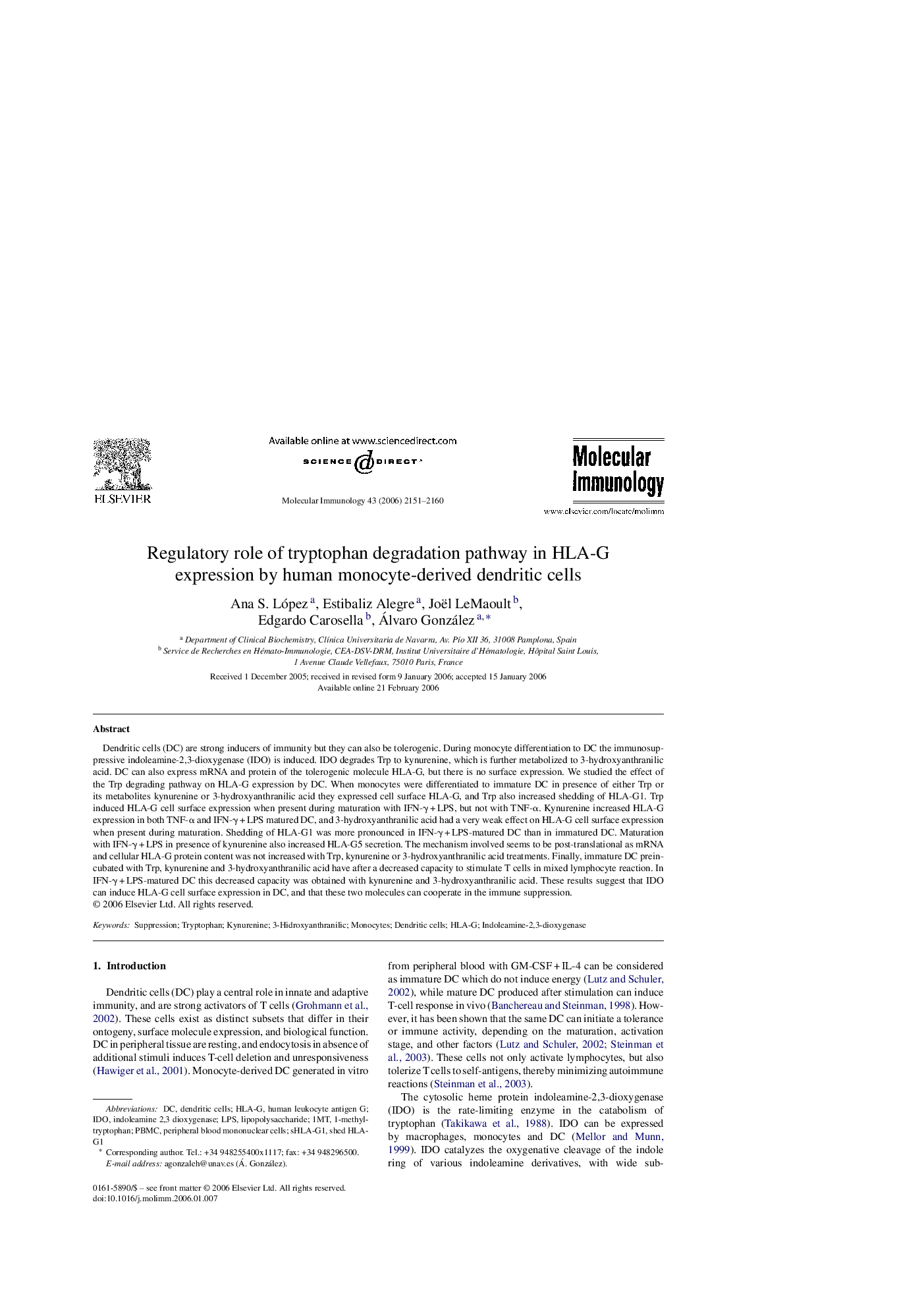| کد مقاله | کد نشریه | سال انتشار | مقاله انگلیسی | نسخه تمام متن |
|---|---|---|---|---|
| 2832791 | 1163846 | 2006 | 10 صفحه PDF | دانلود رایگان |

Dendritic cells (DC) are strong inducers of immunity but they can also be tolerogenic. During monocyte differentiation to DC the immunosuppressive indoleamine-2,3-dioxygenase (IDO) is induced. IDO degrades Trp to kynurenine, which is further metabolized to 3-hydroxyanthranilic acid. DC can also express mRNA and protein of the tolerogenic molecule HLA-G, but there is no surface expression. We studied the effect of the Trp degrading pathway on HLA-G expression by DC. When monocytes were differentiated to immature DC in presence of either Trp or its metabolites kynurenine or 3-hydroxyanthranilic acid they expressed cell surface HLA-G, and Trp also increased shedding of HLA-G1. Trp induced HLA-G cell surface expression when present during maturation with IFN-γ + LPS, but not with TNF-α. Kynurenine increased HLA-G expression in both TNF-α and IFN-γ + LPS matured DC, and 3-hydroxyanthranilic acid had a very weak effect on HLA-G cell surface expression when present during maturation. Shedding of HLA-G1 was more pronounced in IFN-γ + LPS-matured DC than in immatured DC. Maturation with IFN-γ + LPS in presence of kynurenine also increased HLA-G5 secretion. The mechanism involved seems to be post-translational as mRNA and cellular HLA-G protein content was not increased with Trp, kynurenine or 3-hydroxyanthranilic acid treatments. Finally, immature DC preincubated with Trp, kynurenine and 3-hydroxyanthranilic acid have after a decreased capacity to stimulate T cells in mixed lymphocyte reaction. In IFN-γ + LPS-matured DC this decreased capacity was obtained with kynurenine and 3-hydroxyanthranilic acid. These results suggest that IDO can induce HLA-G cell surface expression in DC, and that these two molecules can cooperate in the immune suppression.
Journal: Molecular Immunology - Volume 43, Issue 14, July 2006, Pages 2151–2160